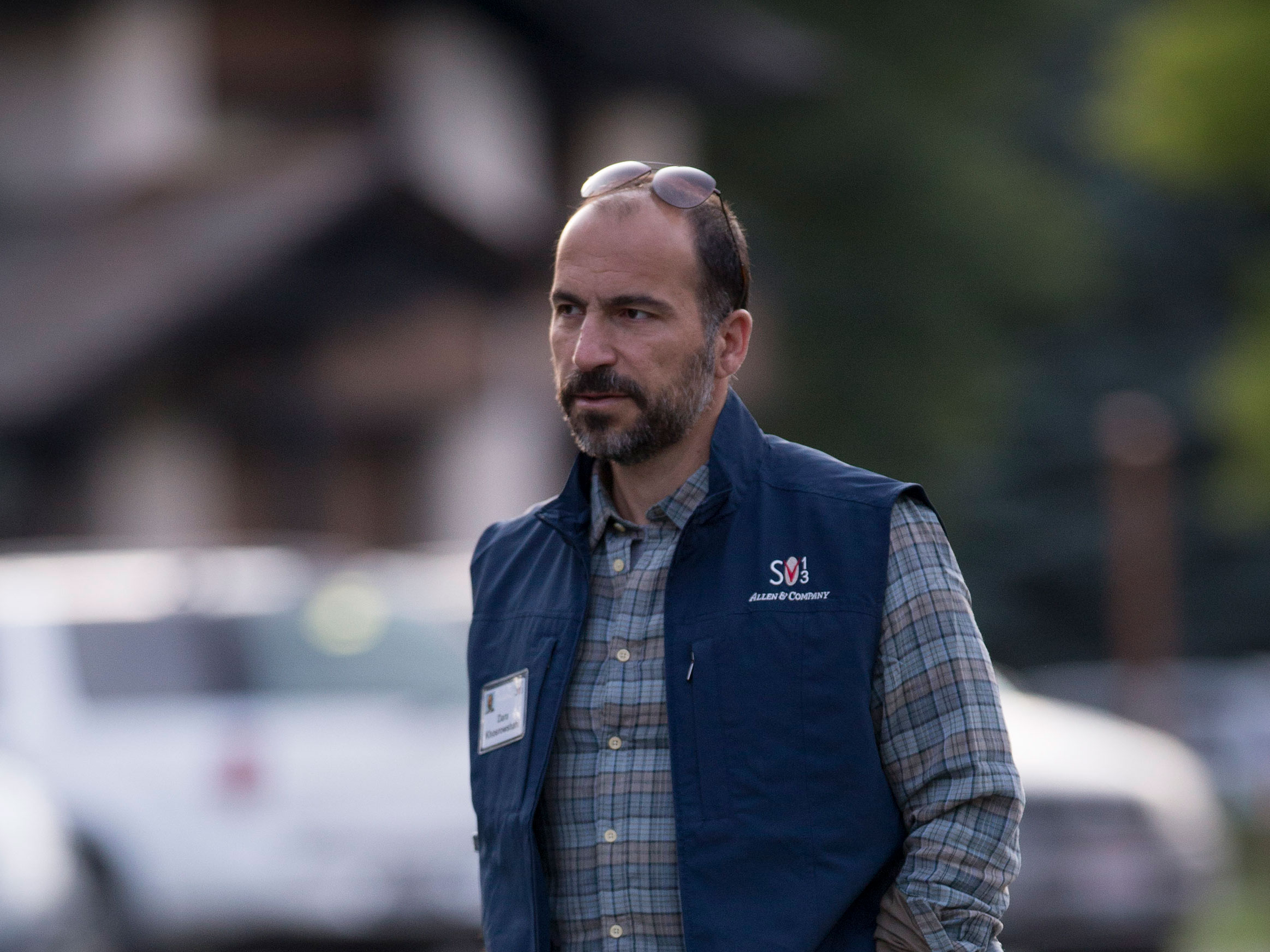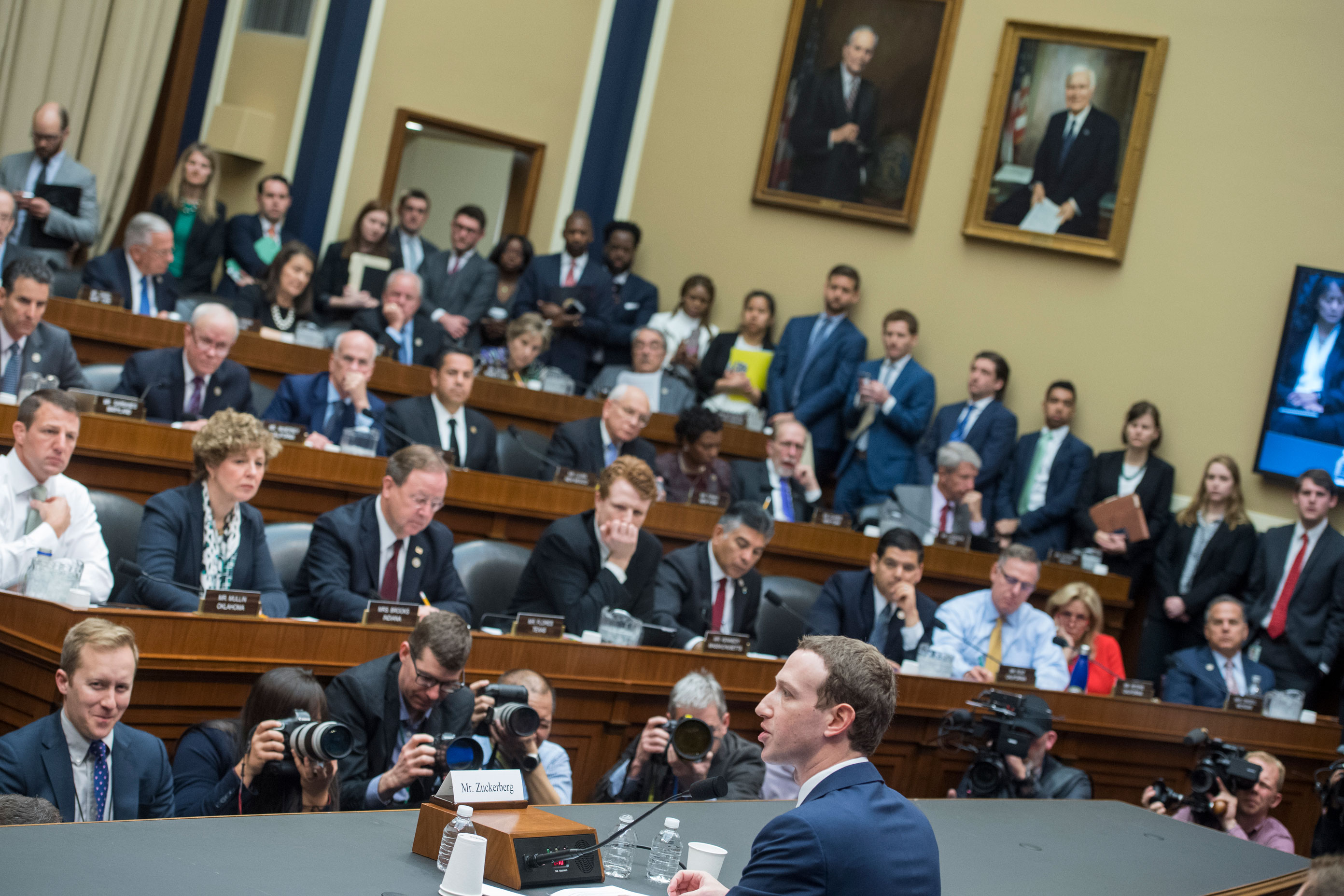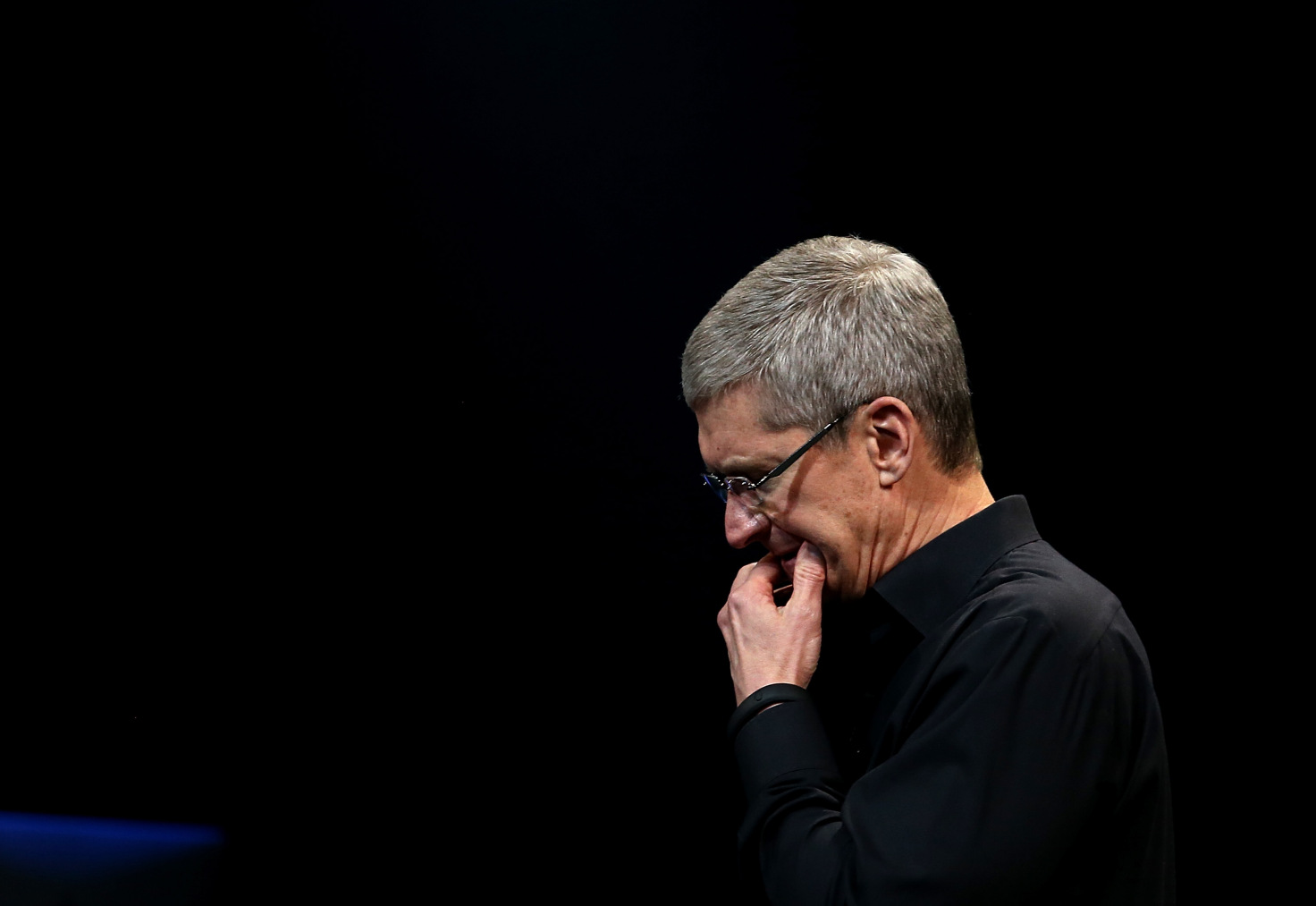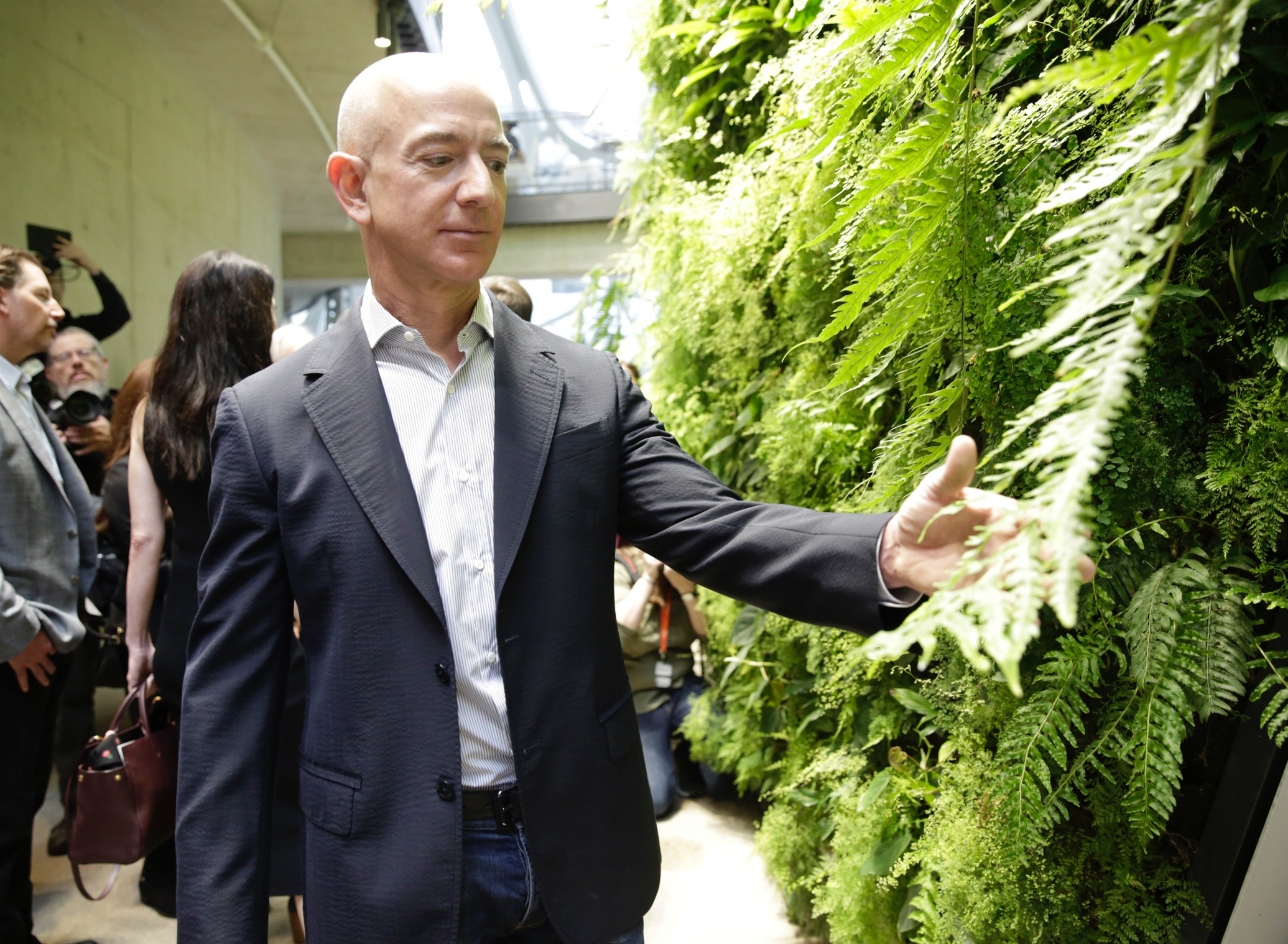Tech companies have always branded themselves as the good guys. But 2018 was the year that the long-held belief that Silicon Valley is on the right side of progress and all things good was called into question by a critical mass.
As startups grow bigger and richer, amassing more power and influence outside of the Valley, a reckoning has played out in government and business. Mission statements like “connecting the world” and “don’t be evil” no longer hold water.
A look at a few of this year’s most impactful news themes underscore why; we’ve racked up too many examples to the contrary.
Android co-creator Andy Rubin’s $90 million payout and sexual misconduct revealed
Since the #MeToo movement opened the floodgates on the importance of fighting for gender equality and fair treatment of women and underrepresented minorities at a large scale, the tech industry was rightfully singled out as a microcosm for rampant misconduct.
In October, a New York Times investigation detailed how Android co-creator Andy Rubin was paid out a $90 million exit package when he left Google in 2014. At the time, Google concealed that the executive had multiple relationships with Google staffers and that credible accounts of sexual misconduct had been filed against him during his time at the company. It was an all-too-familiar story recounting how women in tech aren’t safe at work and misbehaved executives are immune from penalty. Google employees didn’t stand for it.
At a rally in San Francisco, Google staffers read off their list of demands, which included an end to forced arbitration in cases of harassment and discrimination, a commitment to end pay and opportunity inequity and a clear, inclusive process for reporting sexual misconduct safely and anonymously, reported Kate Clark.
Rubin has since taken leave from his smartphone company, Essential.
The first self-driving car fatality occurred when an Uber SUV struck and killed a woman in Arizona

In March, the first self-driving car fatality occurred in Tempe, Arizona when 49-year-old pedestrian Elaine Herzberg was struck by an Uber autonomous test SUV. The car was in self-driving mode, and there was a safety driver behind the wheel who failed to intervene.
Investigators determined the driver had looked down at a phone 204 times during a 43-minute test drive, and that the driver was streaming “The Voice” on Hulu, according to a police report released by the Tempe Police Department. Law enforcement determined her eyes were off the road for 3.67 miles of the 11.8 total miles driven, or about 31 percent of the time.
Uber paused all of its AV testing operations in Pittsburgh, Toronto, San Francisco and Phoenix as a result, and released a safety report detailing how it will add precautions to its testing of self-driving cars. Two employees will be required to sit in the front seat at all times, and an automatic braking system will be enabled.
The incident immediately raised questions about insurance and liability, along with the investigation from the National Transportation Safety Board. As mobility companies charge full speed ahead in developing solutions that will shape the future of urban transportation, tragedies like this remind us that while AVs and humans share the roads, these programs are rife with risk. Has Uber learned a lesson? We’ll find out soon, as the company received permission by the state of Pennsylvania to resume autonomous vehicle testing.
Jamal Khashoggi was assassinated by Saudi agents, prompting Silicon Valley to think about how it got so rich

Silicon Valley companies are used to getting away with a lot. Larger orgs like Uber, Tesla and Facebook rotate in and out of the hot seat as security breaches wreak havoc and sexual harassment scandals are exposed, only to be washed out of the news cycle by a viral image of Elon Musk sampling marijuana the next day.
But one story shocked the public for weeks, after agents of the Saudi government assassinated Washington Post columnist Jamal Khashoggi at the Saudi Arabian consulate in Istanbul as he was trying to obtain marriage license papers.
The tech industry was collectively upset by its proximity to a government and funding source that blatantly misused its power. Silicon Valley gets most of its money through SoftBank’s Vision Fund and by proxy the Saudi kingdom. About half of SoftBank’s massive $93 billion tech-focused fund is powered by a $45 billion commitment from the Saudi kingdom. This means the total invested by the kingdom alone into U.S. startups is far greater than the total raised by any single VC fund. Did we see a single example of a startup that refused to work with SoftBank in the aftermath? No. Will we? Probably not. Because Silicon Valley players are mostly only political and activist when it’s convenient for them.
Silicon Valley companies that have accepted money from this source have a vested interest in keeping the peace with Saudi Arabia and its Crown Prince Mohammed bin Salman — the leader known for getting friendly with tech CEOs in the past. But where does this leave us now as Saudi Arabian money continues to distort American venture? SoftBank has sustained countless startups with round after round of funding as it plunges into debt.
With SoftBank money inflating round sizes and therefore valuations, tech founders and CEOs are faced with the age-old question of whether or not it’s okay to use dirty money to do “good things.” SoftBank’s 2018 culminated in a record IPO that saw a 15 percent drop in value on its debut. Regardless, the aftermath of the Khashoggi assassination could signify the end of an era in American venture if founders begin to think critically about the source of their funding — and act on it.
Facebook’s security meltdown fuels #deleteFacebook fire

Facebook’s 2018 kicked off with Zuckerberg’s wishful, vague post about his personal challenge to “fix Facebook.” The social network bowed out of 2017 with critics saying Zuckerberg hadn’t done enough to combat the proliferation of fake news on Facebook or block Russian interference in the 2016 U.S. election. Online abuse had never been so bad. All of this was happening just as people started to realize that mindlessly browsing the newsfeed — Facebook’s core product — is a total waste of time.
What better timing for not one, but two massive security scandals?
Zuckerberg answered to Congress after Facebook was infiltrated by Cambridge Analytica, a data organization with ties to the Trump administration. In the beginning of 2014, the organization obtained data on 50 million Facebook users in a way that deceived both the users and Facebook itself.
If that weren’t enough, just months later Facebook revealed at least 30 million users’ data were confirmed to be at risk after attackers exploited a vulnerability allowing them access to users’ personal data. Zuckerberg said that the attackers were using Facebook developer APIs to obtain information, like “name, gender, and hometowns” linked to a user’s profile page. Queue #deletefacebook.
A Pew report detailed how Facebook users are becoming more cautious and critical, but they still can’t quit. News and social networking are like oil and water — they can’t blend into coexistence on the same news feed. In 2018, Facebook was caught in a perfect storm. Users started to understand Facebook for what it actually is: powered by algorithms that coalesce fact, opinion and malicious fake content on a platform designed to financially profit off the addictive tendencies of its users. The silver lining is that as people become more cautious and critical of Facebook, the market is readying itself for a new, better social network to be designed off the pioneering mistakes of its predecessors.
Apple hits a $1 trillion market cap and celebrates the anniversary of the iPhone with design changes

This was a hardware-heavy year for Apple. The MacBook Air got Retina Display. The Apple Watch got a big redesign. The iPad Pro said farewell to the home button. We met the new mac Mini and an updated Apple Pencil. In September, Apple held its annual hardware event in Cupertino to announce three new iPhone models, the XS (the normal one), XR (the cheap one) and the XS Max (the big one). We also learned that the company went back to the drawing board on the Mac Pro.
In August, Apple won the race to $1 trillion in market cap. It wasn’t the frayed cords or crappy keyboards that boosted the company past this milestone, but rather price hikes in its already high-margin iPhone sales. But while Apple remains wildly profitable, growth is slowing notably.
Tech stocks took a beating toward the end of the year, and although Apple seems to have weathered the storm better than most companies, it may have reached a threshold for how much it can innovate on its high-end hardware. It may be wise for the company to focus on other methods of bringing in revenue like Apple Music and iCloud if it wants to shoot for the $2 trillion market cap.
As the biggest, richest companies get bigger and richer, questions about antitrust and regulation rise to ensure they don’t hold too much economic power. Tim Cook has more authority than many political leaders. Let’s hope he uses it for good.
Tesla CEO Elon Musk sued by the SEC for securities fraud

In August, Tesla CEO Elon Musk announced in a tweet heard around the internet that he was considering taking Tesla private for $420 per share and that he’d secured funding to do so. The questioning started. Was it legit? Was it a marijuana joke? The tweet caused Tesla’s stock price to jump by more than 6 percent on August 7. Musk also complained that being a public company “subjects Tesla to constant defamatory attacks by the short-selling community, resulting in great harm to our valuable brand.”
Turns out, Musk had indeed met with representatives from the Saudi sovereign wealth fund, and that the fund’s lead rep told Musk that they’d bought about 5 percent of Tesla’s stock at a stake worth $2 billion, were interested in taking the company private and confirmed that this rep had the power to make these kinds of investment decisions for the fund. However, nothing was written on paper, and Musk did not notify the Nasdaq — an important requirement.
At the end of September, the SEC filed a lawsuit against Musk for securities fraud in regards to his “false and misleading” tweets, seeking to remove him from Tesla. Musk settled with the SEC two days after being charged, resigning from his chairman position but remaining CEO. Musk and Tesla were also ordered to pay separate $20 million fines to “be distributed to harmed investors under a court-approved process,” according to the SEC.
Public companies are supposed to value the interests of their shareholders. Pulling the trigger on an impulsive tweet breaks that trust — and in Musk’s case, cost $40 million and a board seat. This is why we should never put too much fear or faith in our leaders. Musk is brilliant and his inventions are changing the world. But he is human and humans are flawed and the Tesla board should have done more to balance power at the top.
The great Amazon HQ2 swindle

Tech jobs bring new wealth to cities. Amazon set out on a roadshow across America in what the company described as a search for its second headquarters, or “HQ2.” The physical presence of Amazon’s massive retail and cloud businesses would undoubtedly bring wealth, innovation, jobs and investment into a region.
There was initial hope that the retail giant would choose a city in the American heartland, serving as a catalyst for job growth in a burgeoning tech hub like Columbus, Ohio, Detroit, Mich., or Birmingham, Ala. But in the end, Amazon split the decision between two locations: New York (Long Island City) and Arlington, Virginia, as the sites for its new offices. The response? Outrage.
Jon Shieber noted that cities opened their books to the company to prove their viability as a second home for the retailing giant. In return, Amazon reaped data on urban and exurban centers that it could use to develop the next wave of its white-collar office space, and more than $2 billion worth of tax breaks from the cities that it will eventually call home for its new offices.
Danny Crichton argued that Amazon did exactly what it should have with its HQ2 process. Crichton wrote that Amazon is its own entity and therefore has ownership of its decisions. It allowed cities to apply and provide information on why they might be the best location for its new headquarters. Maybe the company ignored all of the applications. Maybe it was a ploy to collect data. Maybe it wanted publicity. Regardless, it allowed input into a decision it has complete and exclusive control over.
Let’s hope that in 2019, Silicon Valley will hold on to some of its ethos as a venture-funded sandbox for brilliant entrepreneurs who want to upend antiquated industries with proprietary tech inventions. But let it be known that sleeping at the wheel while your company gets breached, turning a blind eye to the evil doings of your largest funding sources and executive immunity from sexual misconduct violations no longer have their place here.































Comment